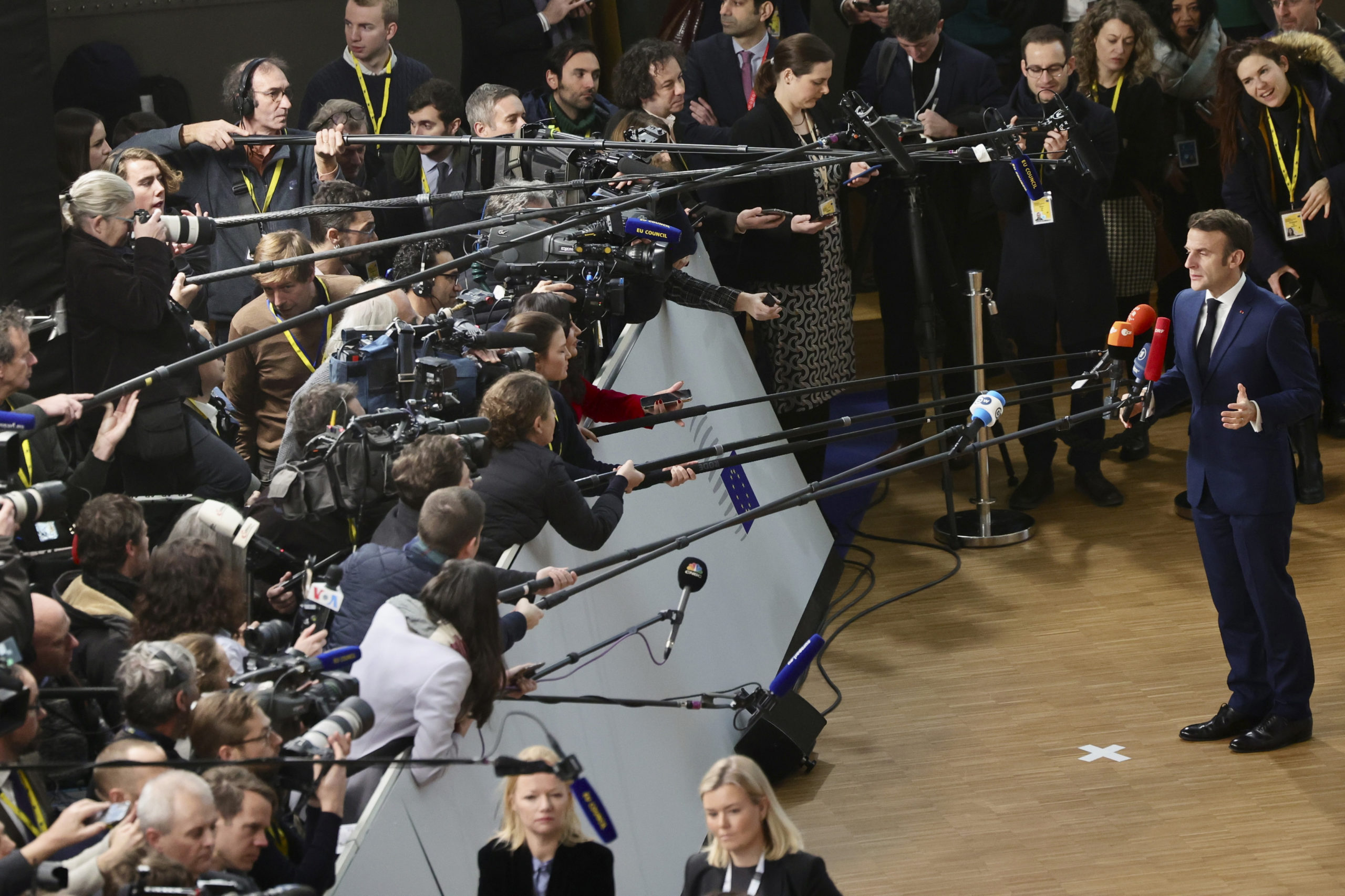BRUSSELS (AP) — European Union leaders on Thursday sought ways to stand up to the United States over its new green technologies plan that they say unfairly discriminates against Washington’s best global ally when both should be standing shoulder to shoulder in their rivalry with Russia and China.
While the 27-nation EU argues the U.S. Inflation Reduction Act unfairly locks a longstanding friend out of the lucrative American market and excessively lavishes subsidies on made-in-America investments, it is now considering a huge subsidy program of its own to boost climate-friendly initiatives.
“We have to react with strength now,” French President Emmanuel Macron said as he headed into a year-end summit of EU leaders.
At the summit, leaders were seeking to counter fears that the EU was a waning industrial power sticking to free and open trade ideals while others jumped toward subsidies and protectionism to shield local industries during recession and tough economic times.
“We are in Europe, really, at the point where we risk to be de-industrialized,” Belgian Prime Minister Alexander De Croo said as he called for a common EU-plan to keep homegrown companies in the vanguard of green technologies that should drive the EU to become climate-neutral by 2050.
“We must boost European public investment to accelerate the energy transition,” European Commission President Ursula von der Leyen wrote to the leaders.
Without such an EU-wide plan, “we’d just be competing against one another, while the United States would be running away with everything,” De Croo said.
The EU’s struggles to come up with a strategic investment plan came into focus because of the Inflation Reduction Act, a $369 billion investment plan that favors American-made climate technology through subsidies and tax credits.
EU officials and leaders object to the tax breaks and production subsidies, but fear that the “buy American” strategy might become a standard under President Joe Biden. EU leaders had long seen Biden’s election new administration as a watershed moment after four years of Donald Trump’s presidency during which trans-Atlantic relations steadily worsened.
Fears are that disagreements over IRA could lead to a trade war and weaken the united stance over the war in Ukraine.
The EU sought for decades to ween aging industries from state aid that kept noncompetitive sectors alive beyond their sell-by date. It now is considering subsidies to give emerging green technology companies enough seed money to develop in a competitive global market.
The main challenge is that such funds are spread equitably across the bloc because there is fear that wealthy and technology savvy nations like Germany and the Netherlands – those “with the deepest pockets” in the De Croo’s words – would be the only ones to thrive.
Meanwhile, the EU hopes that talks with the Biden administration can dull some of the sharpest edges of the Inflation Reduction Act, part of which is set to kick in after New Year’s.
Biden has acknowledged “glitches” in the legislation and said earlier this month alongside Macron that “there’s tweaks we can make” to satisfy allies. But a Democratic lawmaker who was a key architect of the measure said he had no intention of reopening it.

